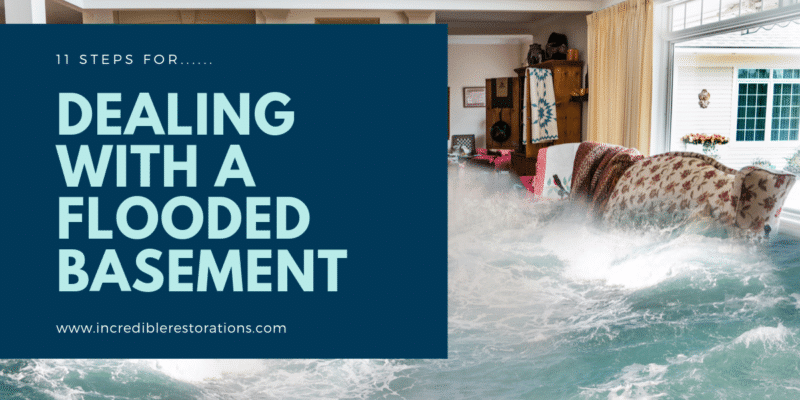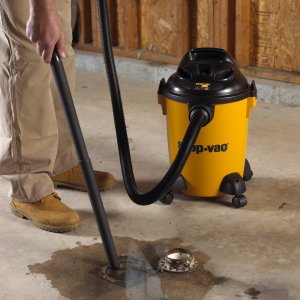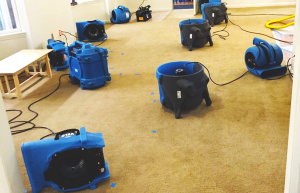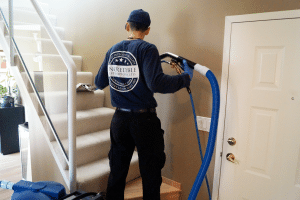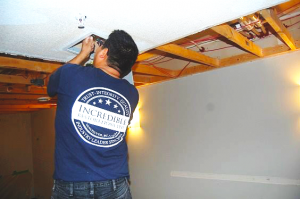Flooding in our basements is always unexpected and can make homeowners feel powerless and stressed out.
If your basement is flooding, it needs to be dealt with quickly.
If left unchecked….
Mold can begin to grow within two days. But don’t worry, we’ll provide you with a step by step formula on how to deal with a flooded basement.
Step 1: Shut Off Power To The House
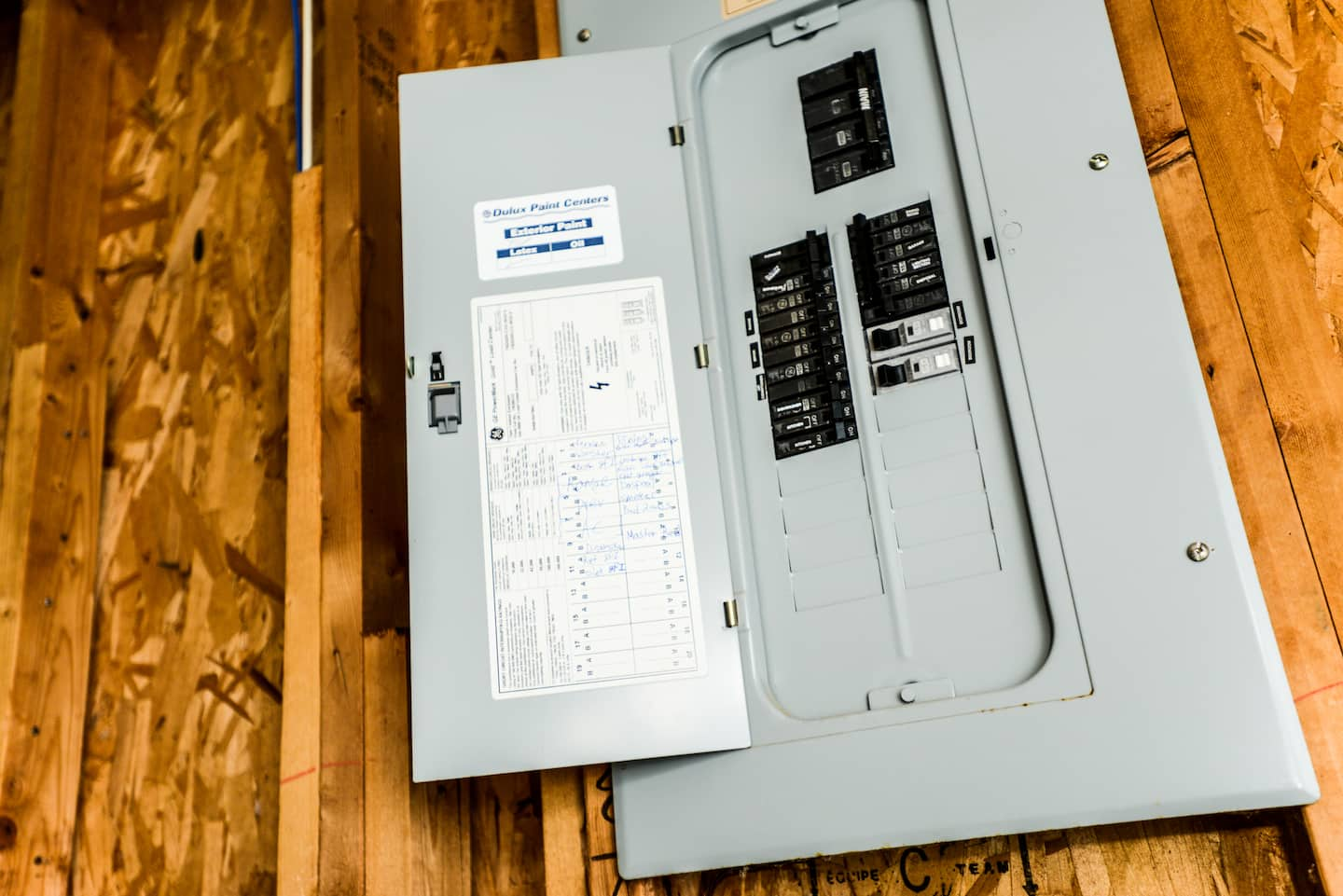
Make sure to shut off power to the house, including electricity and gas.
Entering a flooded area when the power is on is extremely dangerous.
To prepare, make sure you locate your electricity and water shutoffs and know how to shut them off by yourself.
Step 2: Protect Yourself

Wear boots and gloves to protect yourself.
Depending on how severe the flood is, you may need to be wearing more safety gear.
Be careful of slipping when entering the flooded area.
Step 3: Find The Source Of Water Damage
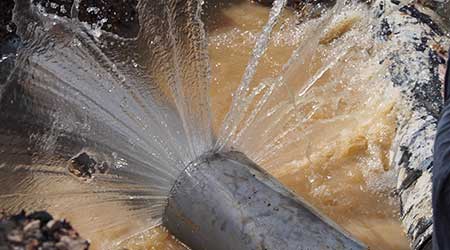
Determine the source of flooding in your basement.
If it’s from a burst pipe, shut off the water if you haven’t already.
If you think it could be from a roof leak, check out this article.
Step 4: Check Your Drains

Check for a floor drain and make sure it isn’t clogged from the flood.
If it’s blocked, clear it and keep it open to help water drain from your basement.
Step 5: Remove Excess Water
Begin removing water from the flood.
Depending on the amount of water, you can use different tools to extract it.
Sump pumps, pool pumps, shop vacs, mops, and buckets are all good tools to use to remove water from the affected area.
One a majority of the water is gone, grab some towels and rags to soak up the rest of the water.
Step 6: Remove Damaged Items
:max_bytes(150000):strip_icc()/moving-couch-resized-58a47fcb5f9b58819ca35bdc.jpg)
Moved damaged items out from the basement and into a dry area with lots of air flow.
Make sure you don’t dry your items out in the already damp basement.
This can lead to mold mildew or bacteria growing in your basement.
Let your items dry for 48 hours and decide if you should keep them or not.
Step 7: Remove Carpeting
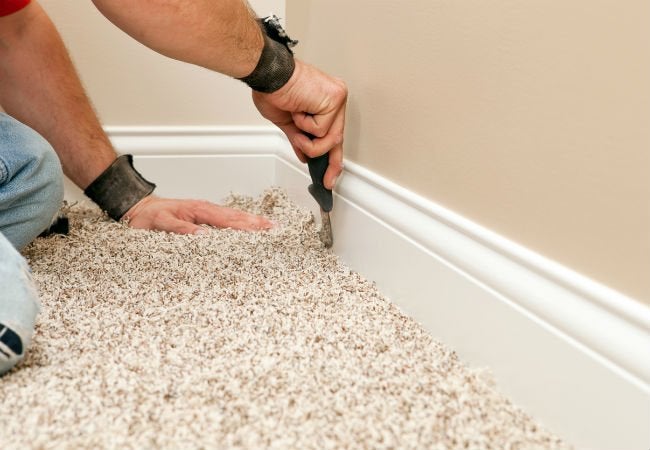
Rip up carpeting and remove it from the basement.
Sometimes carpeting can be saved if dried and cleaned correctly
With carpeting still in place, it’s difficult for the flooring underneath to dry and can result in mold or mildew growth.
You might be able to save the carpet if it’s dried properly but contact a carpet cleaning specialist first for recommendations.
If your flooring is hardwood, check out this guide to see if it can be salvaged.
Step 8: Dry The Basement
Let your basement dry for a few days.
Open up any windows or any ventilation to bring airflow into the room.
Placing fans around the room to circulate air helps decrease the drying time. Dehumidifiers are also useful and can be rented from your local hardware store.
Step 9: Clean Your Flooring
Wash and clean your floors to remove dirt and residue from the flood.
Make sure to put some elbow grease into this so when you reinstall your carpet there isn’t any excess dirt left under it.
Step 10: Remove Damaged Drywall And Insulation
Remove any water damaged drywall and insulation to prevent mold growth.
You might want to have a professional help you at this point.
Sometimes it’s difficult to tell if the insulation behind the drywall is damp.
Professionals have thermal imaging tools that can help determine if there’s moisture in hard to see places.
Step 11: Antimicrobial Spray

When everything is dry, use anti-microbial spray to further prevent the growth of mildew and mold.
Mold can start growing in 2 – 3 days so you need to act fast to prevent it.
Finally….
The water damage repair process can be timely and uncomfortable to deal with. Depending on how badly it’s damaged, it could take weeks to repair water damage.
If you’ve experienced water damage and you’re unsure of how to handle it, make sure to call a reputable water damage restoration company.

